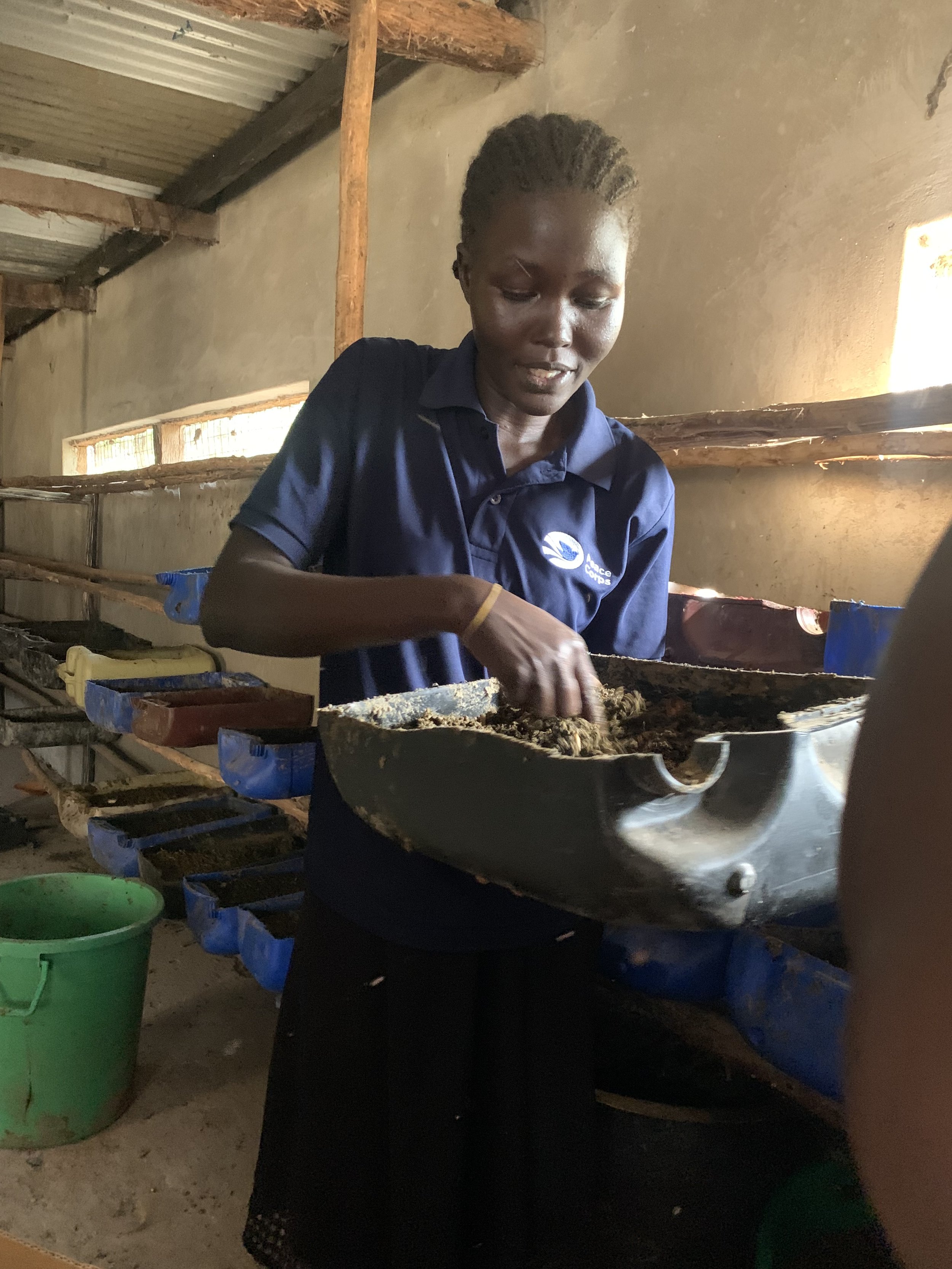Black Soldier Flies (BSF) are prevalent in tropical regions, including Uganda. They are not pests. They do not bite, sting, nor transmit diseases. What the BSF is known for is their voracious appetite. They consume all types of organic waste. As the BSF consumes organic waste, the adult flies lay hundreds of eggs. These eggs produce a protein-rich pupae that is a highly nutritious livestock feed.
All the life stages of the BSF produce useful products for the agricultural community. The larvae can be converted into a nutrient-rich fertilizer, the pupae can be used as a protein-rich feed for fish, poultry or livestock. Scientists and agricultural specialists have taken note and have been advocating for BSF farming to create affordable, high-quality livestock feed and soil amendment.
My host family’s eldest daughter, Winnie Konga, attended a National Agricultural Research Organization (NARO)* training session about BSF and has been raising them successfully for the last 12 months. Her BSF operation has thrived because of her willingness to try something new. She repurposes items available at our farm, she engages cousins and neighbors to give a hand when retail orders come in for pupae, and she taps into her community network to garner interest in her BSF products.
Mixing substrate to feed Black Soldier Flies
Today Winnie’s BSF operation is a community effort. Large orders for various BSF products are difficult for her to fill consistently because she doesn’t have room to expand operations further. School groups and community organizations are calling to receive training, but again there isn’t enough room for large groups of learners. This is why we have completed a grant application to fund the expansion of the BSF operation by refurbishing an existing farm building and purchasing professional equipment that will be sturdy enough to support this growing BSF farm.
Peace Corps has posted our request for funding on their website.
It’s an easy platform to use where anyone can donate with a click of the button.
Our total goal is $3700. Thank you!
*NARO supports the Ugandan agricultural community with different types of trainings including new sustainable agricultural techniques.


